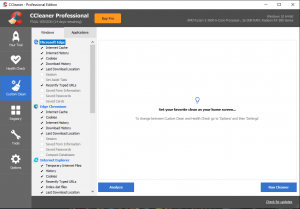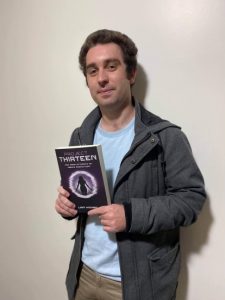Ereaders send book publishers and consumers online
By DANICA FELLOWS
HOLDING 1,000 books in the palm of your hand sounds like a herculean task. Yet with the latest technology, this future has come to be possible.
Ereaders. The device, a small flat rectangle of digital hardware that is the size of a regular paperback, although much thinner, can allow the carrying of hundreds of ebooks, and make this task entirely possible.
These ereaders and their applications have fast become the iPods of the book world, and likewise come with as many problems for the book publishing industry as has happened for the music industry.
The Amazon’s Kindle is one such ereader, and to try and prevent this copyright problem Amazon.com sells ebooks in a format that can only be read on their Kindle. However, there are other ereaders, like the Bebook, the Sony Reader and the iPad, and even just plain old applications for your computer that can read all formats of ebooks, which has caused Amazon problems. As may be expected, people have hacked into the copyright protection and made the Kindle files readable on other devices.
Amazon’s response has been an interesting one. Now the Kindle ebooks have recently been approved to be read on other devices. This month, Amazon offered Kindle applications that can be used on other popular computing devices such as iPhones and PCs. The apps allow you to read your downloaded Kindle books on those devices as well, and synchronise your notes and bookmark created for that ebook to the other device. As Kindle’s are reasonably expensive, this has perhaps been a wise move.
In an interesting online example of the nitty gritty of copyright and its problems with the internet crossing international boarders, is ebooks.com.
What claims to be ‘the world’s leading source of eBooks,’ does not sell, for copyright reasons, certain ebooks to Australian customers, though it does to other major developed countries such as the US, the UK and Japan and many small countries such as East Timor and the Cook Islands. Ebooks that are currently not sold to Australians include major best sellers such as ‘The Girl with the Dragon Tattoo’ and ‘The Lovely Bones’.
Why Australia is so singled out in these cases is down to bizarre copyright laws, but as the country that is claimed to be in the top four of ebooks.com’s sales regions, it must not hurt their profits so badly.
While there is the struggle to overcome the copyright issues, the publishing world is still also trying to deal with the change in output, and it will make them money. There are new business models that are available to publishers, but it’s a long leap from traditional publishing into the online world.
Smashwords is one example of this trend of publishers changing to ebooks. They are a solely online publishing and distribution company that does in fact make profits.
The Smashword business was launched in May of 2008, and took the relatively new concept of ebooks and turned it into a full business. They specialise in assisting in publishers distribute their books online, and publishes ebooks as well. The business model claims that they can provide authors with 16 times more profits than the traditional model as well, and they will make profits themselves if the book sells. In many cases the books are free, and those that aren’t, a customer may often trial up to 50% of a book before committing to a purchase.
Unlike Amazon, rather than favouring any particular ereader device or application, Smashwords provides ebooks in a file format that is supported by most ereaders, known as ePUB.
“From the very beginning, we created our technology to support multi-format outputs. It’s a big challenge to pull everything together because different e-reading devices render books differently. If authors carefully format their books to our recommendations in the Smashwords Style Guide, they usually get great results across all devices,” said Mark Coker, founder of Smashwords.
It is a fact that approximately 50% of all ebook reading is done on personal computers as opposed to these specific ereaders, according to the online publisher from Smashwords Mark Coker.
The ebooks that are read on computers are not all sourced from online bookstores or official online distributors. As ebooks are digital, just like music and movies, they too can be uploaded, shared and downloaded for free through bit torrent programs on the internet.
Amanda, a master’s student at the Australian National University, is an example of this, and has recently started using ebooks on her computer. About three months ago, she found a book she liked in a bookstore, and decided to download it from a bit torrent online. Her computer however was unable to recognise the format, and she downloaded an ereader for her ebook. Since then, she has been downloading many free ebooks for her computer, but does feel some guilt about not paying for them.
“Yep. I’m evil. The thing is if I like them I’ll go out and buy them anyway. Its not like I’m really taking anybody’s money.”
To further reduce the feeling of needing to pay for books, she has said she is prepared to purchase an actual ereader device for herself. This is mainly because reading books on the computer has its drawbacks.
“You can’t really curl up in bed with a computer.”
Which is the very big advantage the ereader devices have over their PC counterparts. As well, Amanda herself has noted the portability of ereaders in her church.
“I know a lot of people that use iPhones for their bible. I feel a bit old-fashioned in church. Its so much quicker to do that, to look up something.”
The ereader changes are slowly creeping their way into smaller businesses too.
Scribbly Gum Books, a small Australian online bookshop, will start to join the bandwagon.
Manager Keith Binnington says they intend on selling ebooks later this year, and already sells audio books in a downloadable digital format online through a companion website.
However, the manager of a Co-op Bookshop Lynn Price has seen little impact from the ebook revolution. The Co-op bookshops sell Bebooks, an ereader device. Lynn’s store has sold out the three they have had in stock.
Ms Price herself has been in the book retailing business for over twenty years, and is unworried by the changes that are happening.
Mark Coker of Smashwords also does not fear for the future of physical books, and being in the online publishing industry has a keen eye on where he thinks the future of publishing might be going.
“They’re all books, whether we read them on paper or a screen. For as long as readers enjoy collecting physical books and reading physical books, they will be available. I think most book printing will move to Print on Demand, so most print books of the future will be printed only after the customer purchases them.”





Be the first to comment!